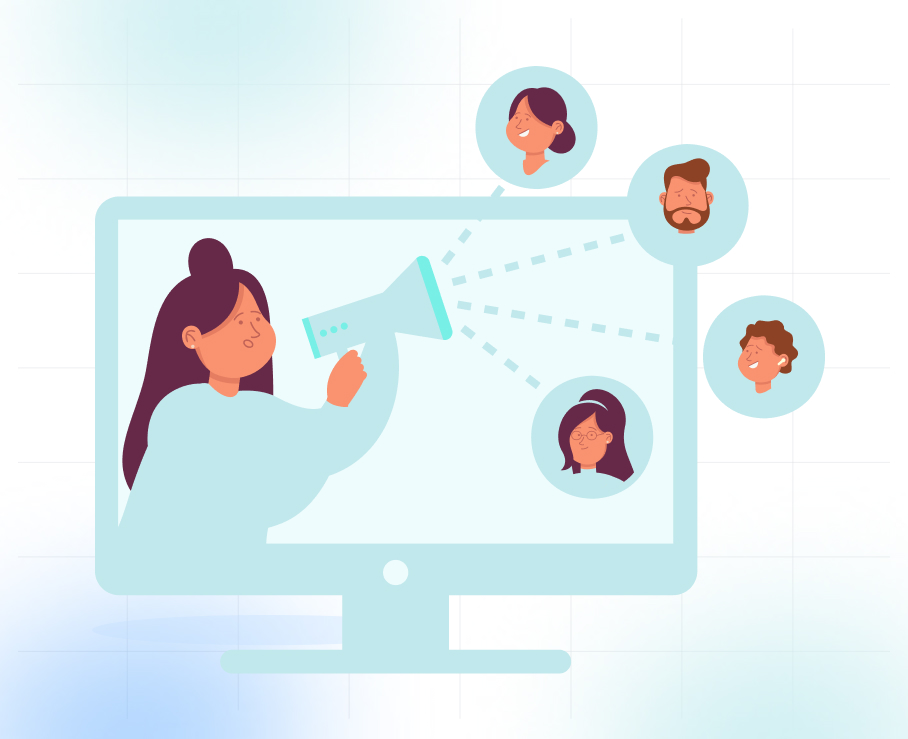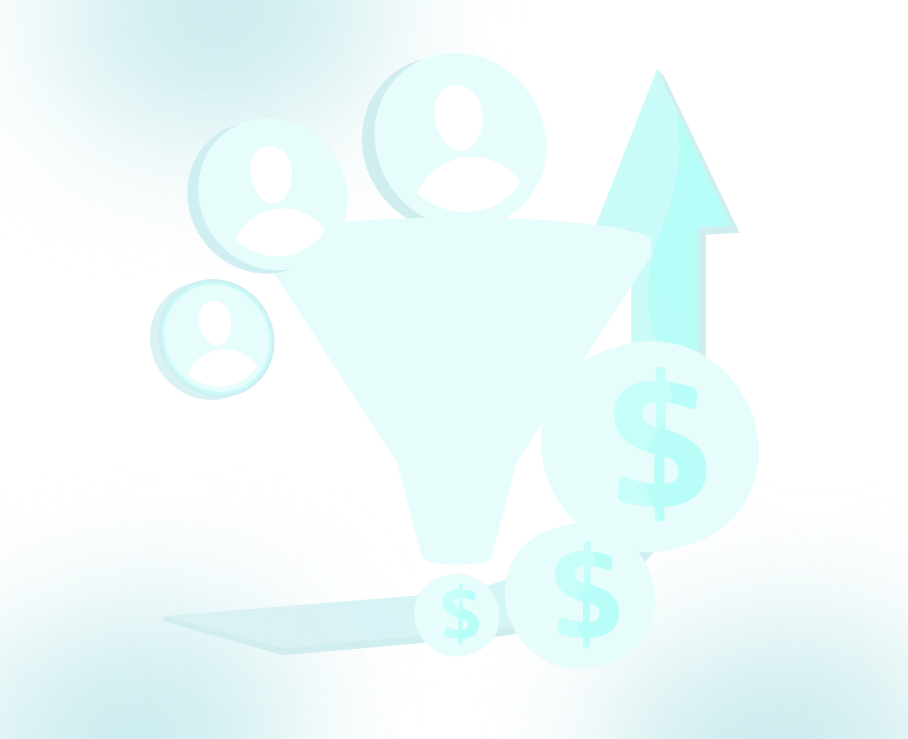
The Ultimate Guide to Outsourced Business Development

Most businesses hit a point where internal bandwidth isn’t enough to fuel the next stage of growth. Sales teams are stretched, founders are juggling too much, and new market opportunities keep getting pushed aside. That’s where outsourced business development steps in, not as a shortcut, but as a focused extension of your team.
It’s about bringing in people who specialize in prospecting, lead generation, and outreach, so your core team can concentrate on what they do best: closing deals, building relationships, and delivering value. When done right, outsourcing isn’t about replacing your strategy; it’s about accelerating it.
This guide cuts through the noise and breaks down what outsourced business development really looks like, how to choose the right partner, and what to expect from the process.
TL;DR:
- Outsourced business development (BDO) means handing off lead generation, outreach, and pipeline-building to experts, so your internal team can focus on closing, not chasing.
- It’s not just about saving money, it’s about speed, focus, and access to proven systems that help you scale faster.
- 21% of a B2B rep’s time goes into researching leads. Outsourcing reclaims that time, giving your team back almost 2.5 months a year to focus on revenue-driving work.
- The right partner doesn’t just bring leads; they bring tools, dashboards, messaging strategy, and reporting that fit into your workflows.
- Success hinges on alignment: clear KPIs, strong onboarding, consistent feedback loops, and a partner who feels embedded in your team.
- As automation, personalization, and global collaboration evolve, BDO isn’t just smart, it’s becoming essential for sustainable growth.
What is Business Development Outsourcing?
Business development outsourcing (BDO) is the practice of working with external partners to handle specific sales and growth functions, like lead generation, prospect outreach, market research, and appointment scheduling. Instead of building and managing an in-house team for these tasks, businesses tap into the experience and systems of dedicated providers who already specialize in them.
This approach is especially valuable for companies that want to scale fast without the overhead of hiring, onboarding, and training. Whether it’s expanding into new markets or building a stronger sales pipeline, outsourcing gives you the flexibility to focus on core operations while trusted partners work behind the scenes to move things forward.
Most outsourced teams today don’t just generate lists; they run full-funnel campaigns. That includes identifying the right prospects, reaching out through personalized messaging, nurturing interest over time, and securing qualified meetings.
Done right, these systems free up your internal sales reps to focus on what they do best: closing. With clear communication, shared KPIs, and the right processes in place, outsourced business development becomes more than just a support function; it becomes a predictable engine for growth.
Read: Top 8 Outbound Lead Generation Strategies for 2025
Why Should Businesses Outsource Business Development?

Outsourcing business development functions brings a range of benefits that can help businesses achieve their goals more efficiently. Whether you're a small startup looking to compete with larger players or a medium-sized company that wants to scale quickly, outsourcing offers a way to access the expertise, resources, and flexibility necessary for growth. Here are some key reasons why businesses opt for outsourcing their business development activities:
1. Access to Specialized Expertise
Outsourcing allows companies to tap into the expertise of professionals who specialize in various aspects of business development, such as lead generation, market analysis, and sales strategy. These experts bring valuable knowledge that might not be available in-house, helping businesses make smarter decisions and accelerate growth.
2. Cost Efficiency
Building an in-house business development team can be expensive, especially when considering salaries, benefits, and training. Outsourcing allows businesses to avoid these costs while still benefiting from top-tier expertise. By leveraging external resources, companies can achieve more with less, which is particularly important for startups and small businesses with limited budgets.
3. Focus on Core Competencies
Outsourcing enables businesses to focus on their core strengths while delegating time-consuming processes to specialized teams. For example, if your internal team excels at product development or customer success, outsourcing lead generation allows them to concentrate on what they do best, without getting sidetracked.
Consider this: 21% of a B2B sales representative’s time is spent on lead research. In a 40-hour workweek, that’s over 8 hours dedicated to finding and qualifying prospects, more than one full day every week. Over the course of a year, this adds up to nearly 2.5 months spent solely on research.
By outsourcing tasks like lead generation and appointment scheduling, companies can eliminate this inefficiency and redirect that time toward closing deals and driving meaningful growth.
Read: 6 Reasons Why Outsourcing Your Email Marketing Can Boost Your Business
4. Flexibility and Scalability
The business landscape is dynamic, and companies need to be flexible to adapt to changes in market demand. Outsourcing offers the flexibility to scale operations up or down depending on business needs, whether it’s during peak seasons or slower periods. This adaptability ensures businesses can remain agile and respond quickly to market opportunities.
5. Global Reach and Market Expansion
Outsourcing can help businesses expand into new markets, especially when partnering with providers who have local expertise in those regions. This is particularly beneficial for companies looking to enter foreign markets where they may not have the internal resources or knowledge. If you’re rethinking how you generate leads, we’re here to help. From targeted email campaigns to appointment scheduling, The Lead Market (TLM) brings structure and strategy to your outreach, so your team can focus on closing, not chasing.
As we’ve seen, outsourcing offers a wide array of benefits that can significantly enhance your business’s growth and efficiency. However, while there are many advantages, there are also challenges to consider. Let’s take a closer look at some of the potential drawbacks and how to overcome them.
Read: Inside vs Outside Sales: Innovating and Redefining the Sales Structure
What to Keep in Mind Before You Outsource Business Development
Outsourcing business development can unlock growth, free up your team’s time, and bring in specialized expertise, but like any strategic move, it works best when you go in with clarity. Here are a few things worth thinking through:
Shared Vision Matters:
Your outsourced team should feel like an extension of your own. That means aligning early on around your goals, messaging, and customer personas. The more context they have, the better they'll represent your brand.
Communication is Key:
Whether you're working across time zones or just across dashboards, setting up clear communication rhythms, like weekly check-ins, shared project boards, or status reports, keeps everyone on track and avoids surprises.
Quality Comes from Collaboration:
Handing off tasks doesn’t mean stepping away. Your input shapes the quality of the output. Stay involved in the early stages to calibrate tone, outreach style, and audience targeting until it clicks.
Data Security Shouldn’t Be an Afterthought:
You're sharing sensitive customer data and internal strategies, so make sure your partner follows strong security practices and confidentiality agreements. It's not about distrust; it’s about good hygiene.
One Size Doesn’t Fit All:
Some partners shine at enterprise outreach; others are great with niche markets or fast-paced startup cycles. Vet based on your unique needs, not just on general reputation.
At the end of the day, the right outsourcing relationship feels less like delegation and more like partnership. When expectations are clear and goals are shared, it becomes a real growth lever, not just a cost-saving tactic.
Read: The Art of Selecting a B2B Lead Generation Vendor: Quality Over Quantity
How to Choose the Right Outsourcing Partner for Business Development

Choosing the right outsourcing partner is crucial for the success of your business development efforts. The right partner can help you achieve your goals quickly and efficiently, while the wrong one can lead to misalignment and wasted resources. Here’s a guide to selecting the ideal outsourcing partner.
- Assess Expertise and Experience
Select a partner with a strong track record and relevant experience in your industry. They should have proven success in managing business development tasks and demonstrate a deep understanding of the specific challenges your business faces. Ask for case studies, testimonials, and examples of their past work to assess their ability to deliver results that align with your business objectives.
- Evaluate Communication Skills
Effective communication is at the core of any successful outsourcing partnership. Assess how quickly and clearly your potential partner communicates. Their ability to understand your requirements, respond promptly to inquiries, and provide regular updates will be critical in ensuring smooth collaboration. Evaluate their communication tools and protocols to ensure there is a structured flow of information.
- Check Cultural Fit
A cultural mismatch can derail your outsourcing partnership. Your partner’s values, work ethic, and operational style must align with your own. During the selection process, look for signs that your potential partner shares your commitment to quality, customer service, and transparency. Consider having a trial period to test this fit before fully committing.
- Understand Their Services and Tools
A good outsourcing partner won’t just bring skills, they’ll bring the right tools too. From project management platforms to collaboration and communication tools, their stack should complement how your team already works. Look for partners who offer a central dashboard or reporting system where you can track progress, view updates in real time, and stay aligned without constant back-and-forth. The smoother the integration, the easier it is to scale and keep quality consistent as things grow.
- Define Clear Expectations and KPIs
It’s essential to set clear, measurable goals from the beginning. Establish key performance indicators (KPIs) that both teams can agree on to evaluate the success of the partnership. Having defined metrics, such as sales growth, lead generation rates, or customer satisfaction, will help ensure everyone stays focused and aligned on the overall objectives.
Choosing the right partner is the first step. Once you've partnered with the right business development outsourcing company, you can reap the benefits of increased efficiency and market reach. But how can you ensure that the outsourcing relationship remains strong and effective over time? Let’s explore some best practices for managing outsourcing relationships.
Best Practices for Managing Outsourced Business Development
Outsourcing isn’t just about finding a capable team; it’s about building a working relationship that drives results over time. Here’s how to make sure that the partnership stays strategic, accountable, and growth-focused:
1. Make Onboarding Count
Don’t treat outsourcing as a plug-and-play solution. Spend time onboarding your partner the way you would a senior hire. Share your ICP (ideal customer profile), past campaign learnings, positioning frameworks, and internal workflows. The more context you provide upfront, the faster they can execute with precision.
2. Build a Shared Language
Every business has its vocabulary, industry terms, brand tone, and internal acronyms. Instead of correcting misalignment later, establish a content and communication guide early on. This reduces friction in messaging, avoids rework, and ensures your brand voice stays consistent across outreach.
3. Treat Strategy as a Two-Way Street
Outsourcing doesn’t mean handing over a task and walking away. Your partner is closest to the frontlines—use their insights. Ask what messaging gets responses, which audience segments show traction, or what’s stalling conversions. Co-own the learning loop and let insights guide iteration.
4. Use Dashboards, Not Gut Feelings
Don’t manage outsourcing by intuition. Set up live dashboards to monitor key metrics, response rates, meetings booked, and pipeline progression. Numbers give you clarity without micromanagement and keep the team aligned on what matters.
5. Review Outcomes, Not Just Activity
It’s easy to track emails sent or meetings scheduled, but focus on what those actions drive. Are the leads a good fit? Are deals progressing? Are sales reps saying the handoffs are useful? Regular reviews should go beyond reporting—they should shape future sprints.
6. Give Feedback Like You Mean It
One-off praise or delayed complaints don’t build high-performance partnerships. Set a regular cadence for structured feedback, what’s working, what’s not, and what needs adjusting. The best outsourcing relationships feel like growth partnerships, not vendor check-ins.
7. Balance Flexibility with Accountability
Great partners need room to experiment—but with boundaries. Define which parts of the process are fixed (like messaging tone or target audience) and where there’s freedom to test. That balance helps maintain brand integrity while optimizing for outcomes.
8. Protect Learning for the Long-Term
As your partner learns what works, make sure that knowledge is captured and shared. Create a shared knowledge base of successful templates, tested subject lines, and outreach cadences. That way, learnings stay with you even if team members or providers change.
The best outsourced partnerships don’t feel outsourced. They feel embedded. When trust, transparency, and shared wins are baked into the process, you get more than just a pipeline; you get a partner in growth.
The Future of Outsourced Business Development
Outsourced business development isn’t just here to stay—it’s evolving fast. As buying behaviors shift and digital tools mature, companies are rethinking how they approach growth.
We’re seeing a move away from generic outreach toward smarter, tech-enabled strategies. AI and automation are no longer buzzwords, they’re streamlining prospecting, scoring leads, and personalizing follow-ups in ways that save time and boost conversion. Outsourcing partners who know how to use these tools well will have a real edge.
Meanwhile, remote-first teams are becoming the norm. Businesses are partnering with specialized teams across time zones, not just for cost savings, but to keep their pipelines active 24/7 and gain insights from diverse markets.
Data is also playing a bigger role. It’s no longer just about activity metrics; it’s about identifying what’s actually moving the needle. The future of BDO will lean heavily on partners who can surface the right signals and adapt quickly based on what’s working.
In short: the most effective outsourced teams will be the ones that combine smart tech, sharp insights, and human nuance to create momentum that actually lasts.
Read: The Future of Email Marketing and Cold Calling: Strategies to Stay Ahead
NYC Leading MSP Enhanced Multi-Campaign Strategy with TLM
A leading Managed Services Provider (MSP) in New York City had spent $500K on traditional outbound methods like cold calling, newsletters, and direct mail, but they weren’t getting the desired results. They needed a cost-effective and efficient lead generation approach for both their Managed IT Services and digital transformation offerings, like ServiceNow.
To address this, we developed a targeted email marketing campaign. Our strategy began with a focus on sales-qualified leads (SQLs) in the local NYC area, gradually expanding to nearby regions. The campaign’s content was crafted to highlight the benefits of remote and onsite support, ensuring it resonated with potential clients.
In the first month, the campaign generated two quality leads for Managed IT Services, and one of these quickly converted into a client. Over the next several months, our dual campaigns targeting businesses valued between $15M and $100M consistently brought in two leads per month per campaign. The client was pleased with the results, as the campaigns generated steady traction and high-quality leads.
How TLM Transforms Outsourced Business Development into Long-Term Growth
At TLM, we specialize in B2B lead generation, helping businesses supercharge their lead generation and sales strategies. Our services are designed to transform your sales efforts into sustained growth with solutions that improve lead conversion rates and ensure your outreach is both impactful and measurable. Here’s how TLM stands out with their services:
- Targeted Lead Generation: TLM uses advanced segmentation strategies to build precise email lists, ensuring that your messages reach the most relevant prospects. This targeted approach forms the foundation of highly effective campaigns that yield better-qualified leads and higher conversion rates.
- Personalized Outreach: Understanding that generic emails fall short, TLM creates personalized email campaigns tailored to specific audience segments. This level of customization enhances engagement, improves response rates, and increases the likelihood of turning prospects into clients.
- Appointment Scheduling: TLM streamlines the scheduling process by automating the booking of meetings with qualified leads. This reduces the time your sales team spends on administrative tasks and allows them to focus on closing deals instead of chasing leads.
- Account-Based Marketing (ABM): TLM focuses on high-value accounts, customizing email strategies to target decision-makers. This targeted approach accelerates the sales cycle and ensures that your outreach is highly effective for key prospects.
- Data-Driven Optimization: By using advanced analytics tools, TLM continuously tracks the performance of each campaign. This allows them to fine-tune strategies, ensuring that every email sent brings your business closer to achieving its sales goals.
Outsourced business development is more than just a cost-saving measure. It's a strategic investment that allows businesses to scale efficiently, access specialized expertise, and focus on their core strengths.






